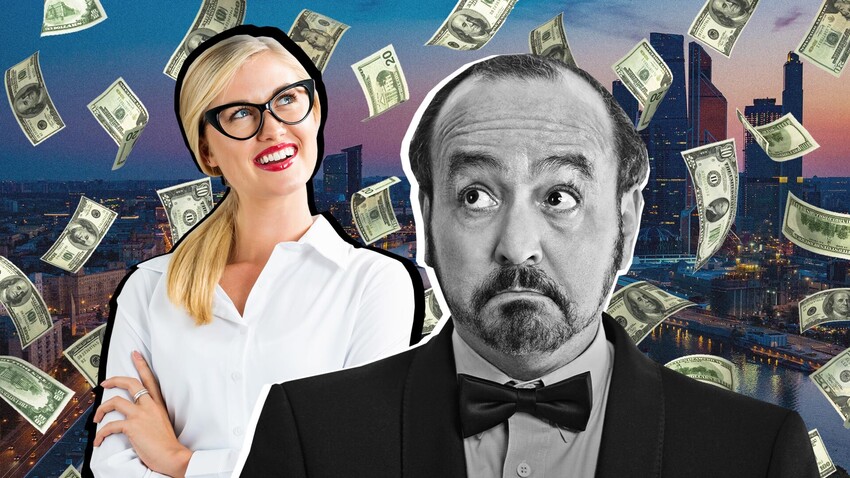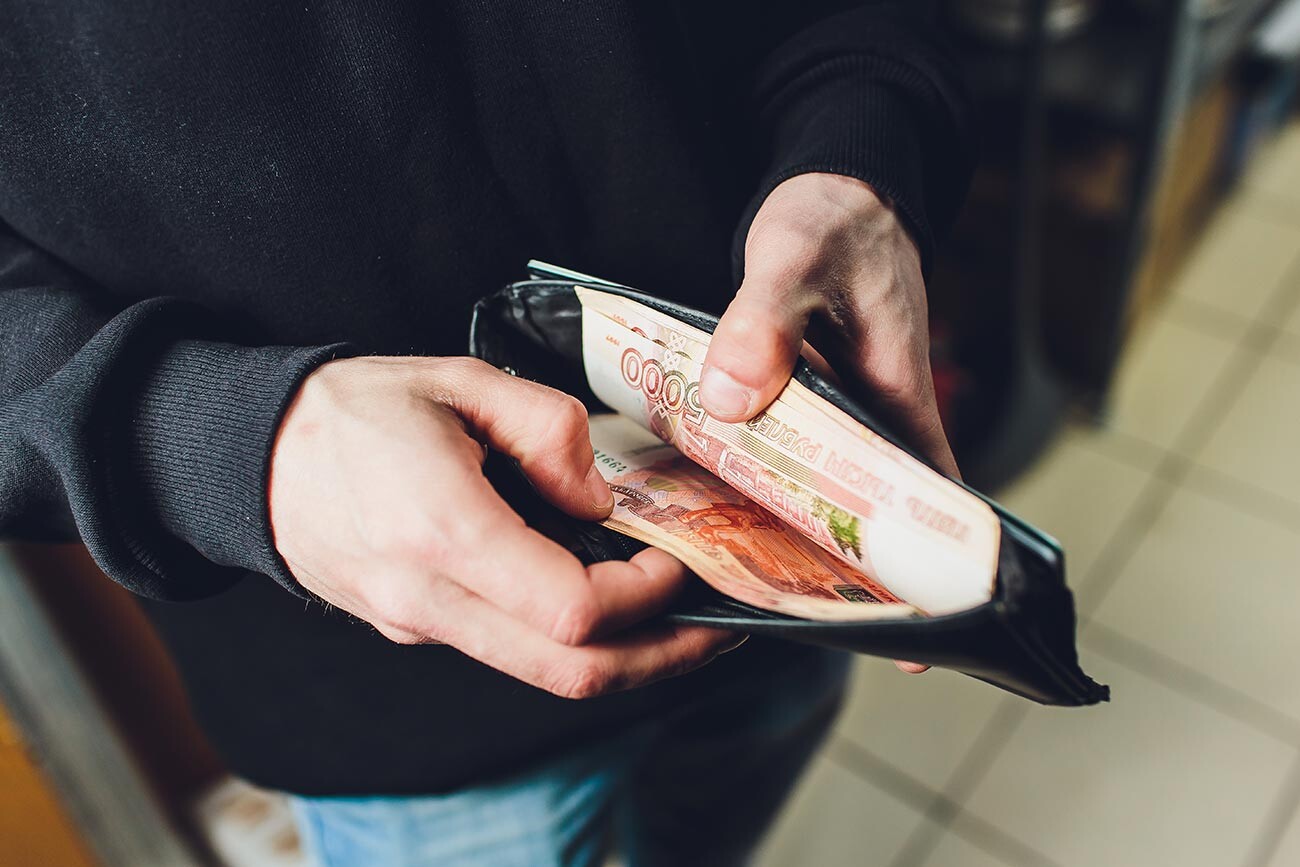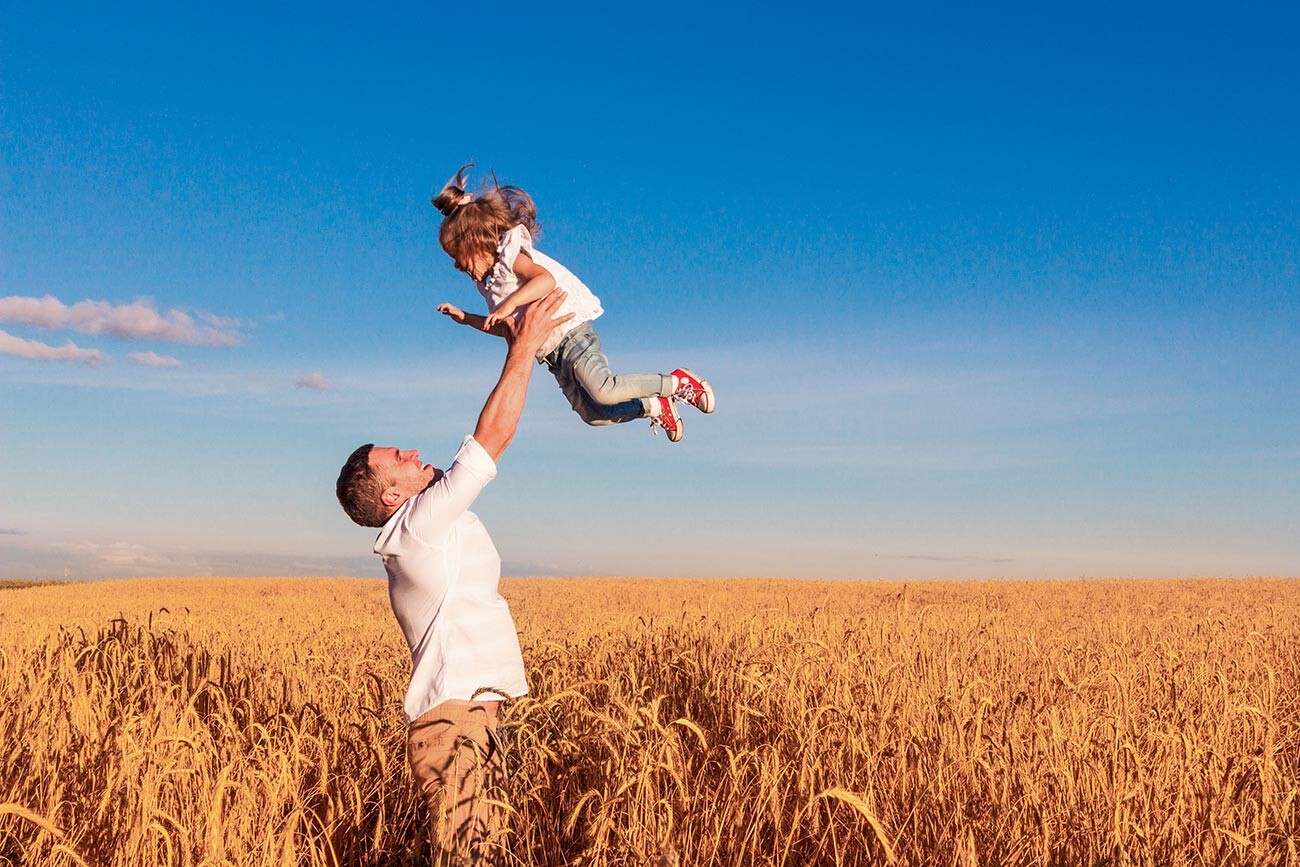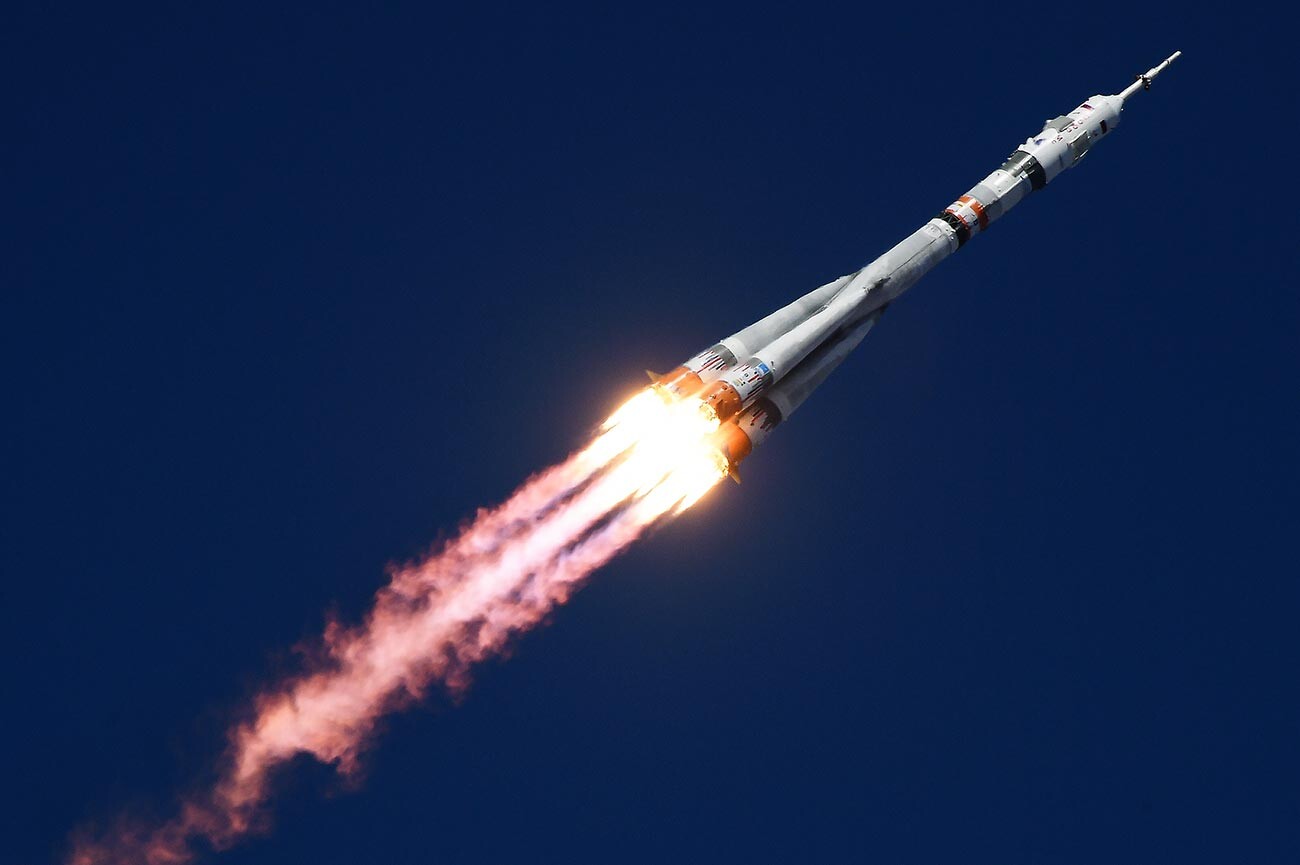What's the PRICE of happiness in Russia?

The average Russian man needs 203,000 rubles (≈US$2,640) per month (after taxes) to be happy, while a woman needs 155,000 rubles (≈US$2016), almost a third less, according to the online recruitment portal SuperJob in late 2021.
Only in 2017 was the literal price of happiness higher: the average Russian back then needed 184,000 rubles. (≈US$2394). Today’s average figure (for men and women) is 178,000 rubles (≈US$2316).

The higher the salary of respondents, the more money they need to be happy.
Legion MediaThe cost of living in Moscow means that Muscovites need more income to ensure happiness: 228,000 rubles per month (≈US$2966). Here’s what the Top 5 looks like:
How much money do you need to feel happy (monthly income):
1. Moscow: 228,000 rubles (≈US$2966)
2. Vladivostok: 204,000 rubles (≈US$2654)
3. Rostov-on-Don: 198,000 rubles (≈US$2576)
4. St Petersburg: 192,000 rubles (≈US$2498)
5. Yekaterinburg: 186,000 rubles (≈US$2420)
As you can see, second place belongs not to St Petersburg, which is often called the second capital of Russia, but Vladivostok. This city, located in the country’s Far East, far from European Russia, has high logistics costs and, thus, high price tags on many goods.
The financial needs of Russians increase with age, reaching a peak at around age 35–44, before dipping again.
Does money buy happiness?

Despite a clear discrepancy between the average salary (around 55,000 rubles (≈US$715) in 2021) and the desired level of income, the majority of Russians (84%) consider themselves happy, according to a study by the Russian Public Opinion Research Center (VTsIOM). The most important thing for Russians is for them and their loved ones to be healthy (29%). Feelings of happiness are also associated with having a family (27%) and children (22%), overall satisfaction with life (21%) and having a good job (20%).
Those who do not feel happy cite the current situation in the country (8%), lack of material resources (7%), lack of stability (6%) and family issues (5%).
“Happiness is not directly related to income,” sociologist Dr Andrey Milekhin, president of the research company Romir and vice president of the association of polling agencies Gallup International, is quoted by Expert magazine.
Also in late 2021, Gallup International and Romir compiled a global happiness index, which placed Russia in the Top 5 least happy countries in the world. 5% of Russians are very satisfied with their lives, 36% are simply satisfied, 17% are dissatisfied, while 30% are “neither satisfied nor dissatisfied.” Only residents of Ghana, Afghanistan, Hong Kong and Iraq consider themselves less happy.
“Russians, like most people worldwide, traditionally compare themselves not with their neighbors, but with economically developed countries,” Milekhin explains.
What do Russians dream about?

“I already own an apartment and a car. I don’t have to pay for kids’ education yet, so my dream is to be a space tourist. To make it happen in five years, at the current ticket price (US$450,000), I’ll need to earn 600,000 rubles (≈US$7,800) a month,” Ivan from Moscow shared his goal with Russia Beyond.
For Elena from St Petersburg, her children’s higher education is front and center: “My eldest son already graduated from the university, and my daughter will enter this year,” she says. “We’ll know soon whether she’ll study in St Petersburg or go to Moscow. In the latter case, there’ll be accommodation and living expenses, plus travel costs to visit home. That will be at least 40,000 rubles (≈US$520) a month, assuming the course itself is free.”
“Not so long ago, I had the idea to sell my apartment in Vladivostok and move to Crimea. I can no longer stand the climate in Vladivostok. So I thought about selling my apartment and building a house in the south; my budget is around 6 million rubles (≈US$78,000),” writes Vladivostok resident under the alias Marutya on a forum. Due to natural decrease and migration, the population of Vladivostok has been falling steadily in the past few years. Residents themselves cite the main reasons as the low level of development of the city and the region as a whole, and the discrepancy between wages and the cost of food and housing.
According to a VTsIOM survey in 2021, the most pressing need for Russians is health for themselves and loved ones (9%). The second most common desire is to improve their family’s living conditions (8%). Another 5% dream of traveling and 4% of improving their living standards and material well-being.
If using any of Russia Beyond's content, partly or in full, always provide an active hyperlink to the original material.
Subscribe
to our newsletter!
Get the week's best stories straight to your inbox